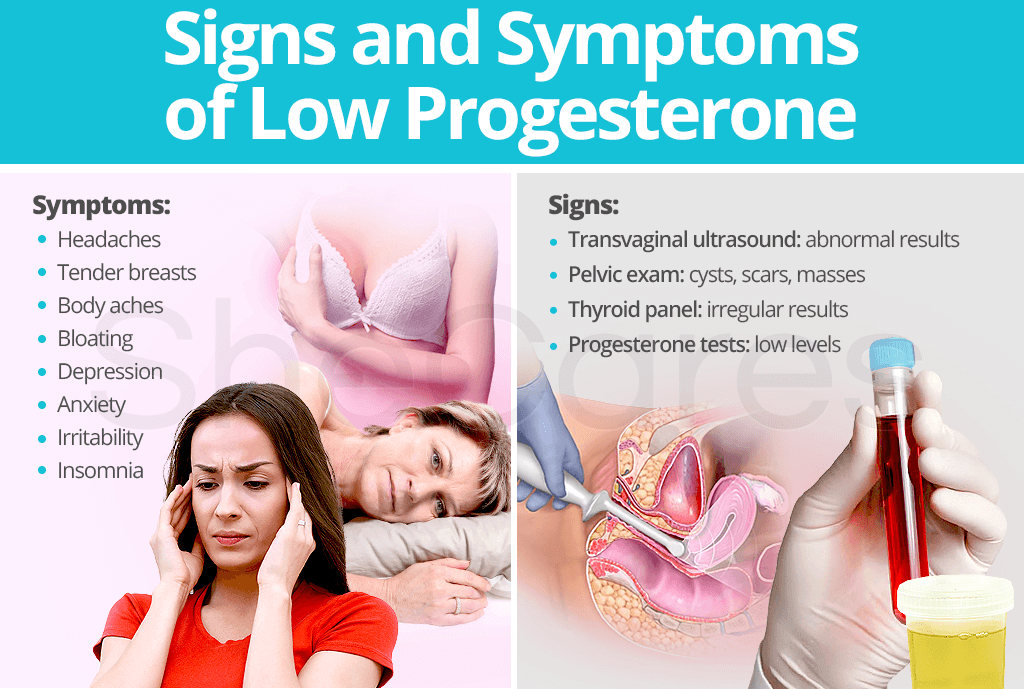
Low Progesterone in Early Pregnancy: Causes, Symptoms, and Treatment
Progesterone is a hormone produced by the ovaries that plays a crucial role in maintaining pregnancy. It helps prepare the uterus for implantation, supports the growth of the uterine lining, and suppresses uterine contractions. Low progesterone levels in early pregnancy can lead to complications and increase the risk of miscarriage.
Causes of Low Progesterone in Early Pregnancy
- Corpus luteum deficiency: The corpus luteum is a temporary structure that forms on the ovary after ovulation. It produces progesterone to support the early stages of pregnancy. If the corpus luteum does not function properly or fails to produce enough progesterone, it can lead to low progesterone levels.
- Ovarian cysts: Cysts on the ovaries can interfere with ovulation and the production of progesterone.
- Polycystic ovary syndrome (PCOS): PCOS is a hormonal disorder that can affect ovulation and progesterone production.
- Thyroid disorders: Hypothyroidism, an underactive thyroid gland, can disrupt hormone balance and affect progesterone levels.
- Medications: Certain medications, such as birth control pills and some fertility drugs, can suppress progesterone production.
- Lifestyle factors: Stress, smoking, and excessive alcohol consumption can all potentially lower progesterone levels.
Symptoms of Low Progesterone in Early Pregnancy
- Vaginal bleeding or spotting: Low progesterone levels can cause irregular bleeding or spotting during the first trimester.
- Abdominal pain: Cramping or pelvic pain can be a sign of low progesterone and an increased risk of miscarriage.
- Breast tenderness: Reduced breast tenderness or sensitivity can indicate low progesterone levels.
- Fatigue: Progesterone has a calming effect, so low levels can lead to increased fatigue.
- Nausea and vomiting: While nausea and vomiting are common in early pregnancy, severe or persistent symptoms may be associated with low progesterone.
- Frequent urination: Increased urination can be a symptom of low progesterone, as the hormone helps regulate fluid retention.
Treatment for Low Progesterone in Early Pregnancy
The primary treatment for low progesterone in early pregnancy is progesterone supplementation. This can be administered through:
- Vaginal suppositories: Progesterone suppositories are inserted into the vagina, where they dissolve and release the hormone locally.
- Injections: Progesterone injections are given intramuscularly, typically once or twice a week.
- Oral medications: Oral progesterone medications are available, but they may not be as effective as vaginal or injectable forms.
Progesterone supplementation is usually continued until the placenta takes over progesterone production, which typically occurs around 10-12 weeks of pregnancy.
Risks and Complications of Low Progesterone in Early Pregnancy
Low progesterone levels in early pregnancy can increase the risk of:
- Miscarriage: Progesterone is essential for maintaining the pregnancy and preventing miscarriage.
- Premature birth: Low progesterone levels can weaken the uterine lining and increase the risk of premature birth.
- Placental abruption: This is a condition where the placenta separates from the uterine wall, which can be life-threatening for both the mother and baby.
- Intrauterine growth restriction (IUGR): Low progesterone levels can impair fetal growth and development.
Prevention of Low Progesterone in Early Pregnancy
While not all causes of low progesterone are preventable, certain lifestyle modifications may help:
- Manage stress: Chronic stress can disrupt hormone balance.
- Quit smoking: Smoking damages the ovaries and reduces progesterone production.
- Limit alcohol consumption: Excessive alcohol intake can interfere with hormone production.
- Maintain a healthy weight: Obesity can affect hormone balance and ovulation.
- Get regular exercise: Moderate exercise can support hormonal health.
Conclusion
Low progesterone levels in early pregnancy can have serious consequences. However, with timely diagnosis and appropriate treatment, the majority of women with low progesterone can carry healthy pregnancies to term. If you experience any symptoms suggestive of low progesterone, it is crucial to consult your healthcare provider promptly for evaluation and management.